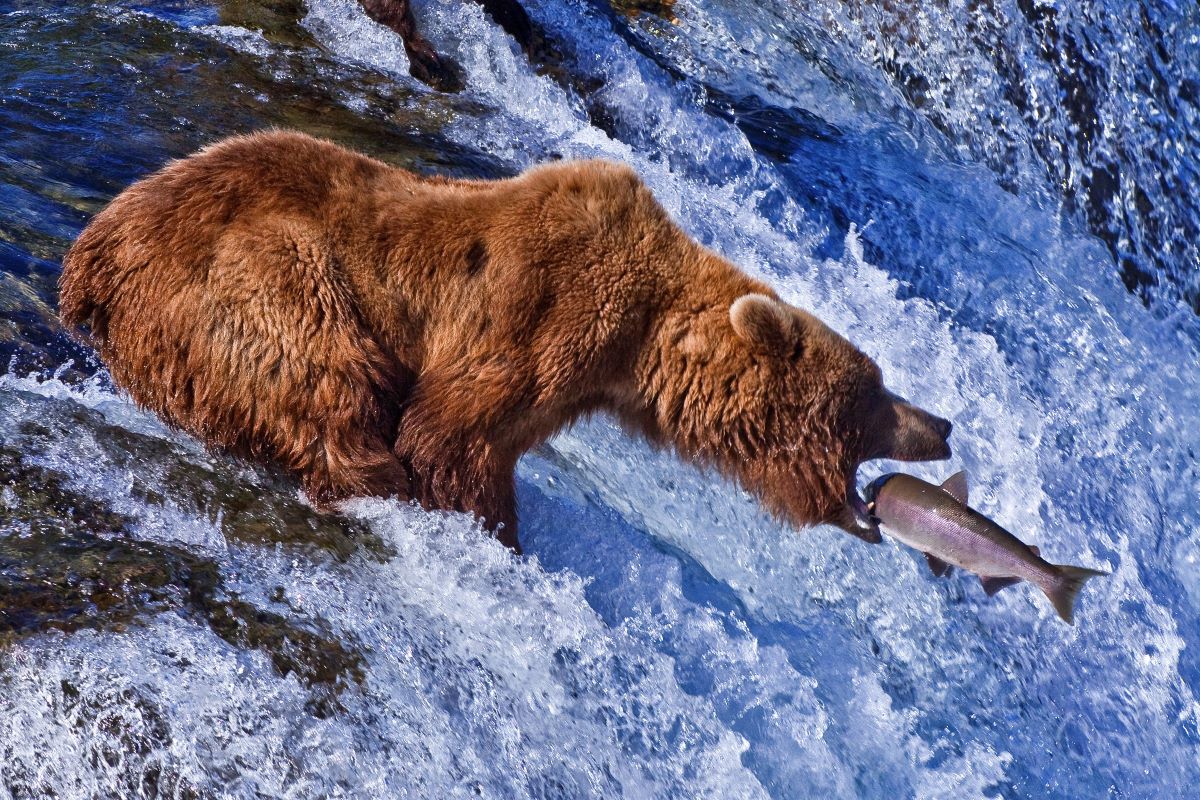
Deliciously Eco-Friendly
We are all invested in preserving, maintaining, and healing our environment. The foods we choose to include in our diets have a huge impact on our ecological footprint. So where does Copper River wild salmon fit into sustainable eating?
Large-scale farming of cows, pigs, chickens, and other animal protein livestock requires large tracts of land and copious amounts of water. Land mammals raised on factory farms also produce high levels of greenhouse gases, including methane and nitrous oxide. Using current farming practices around the world, raising livestock on land is extraordinarily harmful to the environment.
Many organizations, including the United Nations and the World Economic Forum, recommend reducing the amount of red meat and dairy we eat as one of the top ways individuals can help slow climate change.
Order Copper River Salmon HERE
Sustainable Salmon
Copper River wild salmon has all the benefits of other dietary animal protein without the environmental impact. It’s also healthy, far healthier than red meat.
What makes Copper River wild salmon an excellent sustainable food choice? Responsible harvesting limits the number of fish taken from the river each year. Teams of marine biologists set the limits for the three species of Copper River salmon based on updated analyses of the conditions on the river.
Copper River salmon stay in their natural environment, contributing to healthy ecosystems in the rivers and oceans where they feed and breed. Harvesting has a very low environmental impact, with anglers using traditional fishing methods.
Wild salmon harvesting is tightly controlled to maintain the fish population, the health of the river system, and the needs of the native Alaskans. Alaskan rivers also support local wildlife like the hungry bear in our picture. As climate change warms Alaska’s waters and alters the river ecosystems, the allowable catch is adjusted accordingly.
Salmon farms also play a role in providing high-quality, protein-rich food for a hungry world. Farmed salmon is not as environmentally sustainable, healthy, or flavorful as Copper River wild salmon, but it is more abundant. The salmon you see at the grocery store is probably farmed.
Salmon farms negatively impact the surrounding marine ecosystem and many suffer from the overcrowding, antibiotic use, and other pitfalls of factory farming. It is potentially significantly more sustainable than land-based livestock, but there are issues yet to be completely resolved.
Copper River wild salmon is in a class of its own. It’s a healthy, sustainable, eco-friendly delicacy favored by fine dining establishments worldwide.